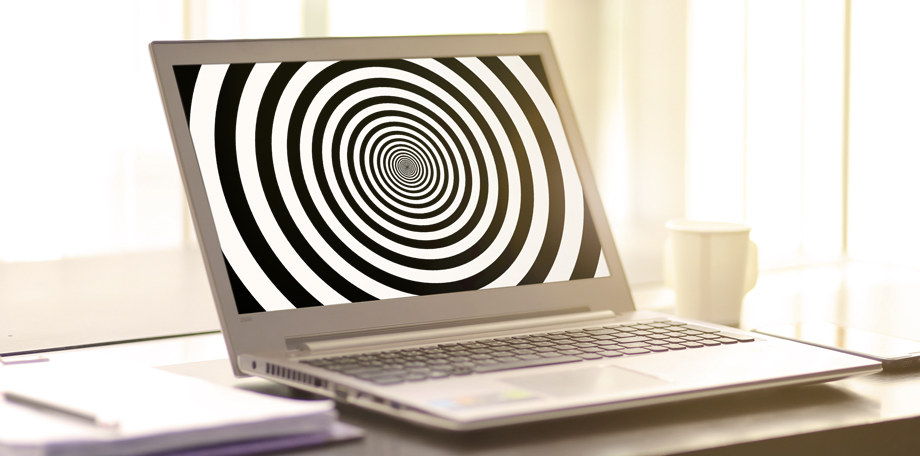If you feel like you are currently starring in the movie Groundhog Day, you aren’t alone. While the world begins to reopen, the return to work movement is crawling. Leaders are working hard to figure out the next steps for their workforces, but in the meantime, we are feeling like every day is set on repeat.
A recent survey by the job site Indeed found more than half of workers are feeling burned out. It’s worse for remote workers, who say working from home is becoming monotonous and draining. Indeed surveyed 1,500 U.S. workers of different age groups, experience levels and industries and found:
- 67% of workers say the pandemic has worsened employee burnout.
- Virtual workers are more likely to say burnout is worse than those working onsite.
- 27% of workers are unable to unplug from work.
- In fact, more than half of virtual employees are working more hours now than they were in the office.
I think the burnout can be attributed in part to a loss of variety in our lives. We aren’t chatting with co-workers about our personal lives, having offsite lunches together or simply engaging with the barista at Starbucks on our commute in to work. The sameness and lack of stimulation in our lives is contributing to the fatigue surrounding remote work.
Related: Achieving Work-Life Balance while Working Remotely
Zoom Reprieves
It’s gotten so bad that people are looking for any way to reduce the amount of time they are spending in Zoom calls. At the beginning of the pandemic, JMA’s coaches moved from in-person sessions to Zoom meetings. Now, I have several clients who prefer to do their coaching sessions on the phone so that they can walk as we talk. They don’t need to screen share a presentation or use a whiteboard with me, so it’s one of the few meetings they have in their day where they aren’t required to be in front of the screen.
Companies are noticing this burnout trend and are making moves to try to keep their employees happy and refreshed. PayPal tells us “To help our employees balance the demands of remote working during the pandemic, PayPal launched a series of company-wide global wellness days where employees were encouraged to take paid time-off to recharge and re-energize.”
CNN reported that LinkedIn gave its employees around the world an entire week of paid time off in April. By ensuring all 15,900 full-time employees took the same time off, no one could be bombarded by emails and meeting requests piling up in their absence.
Marketing software giant HubSpot recently introduced its HubSpot Unplugged initiative. It includes no internal meetings on Fridays through August, new mental health and well-being programming for employees, and a Global Week of Rest in July. All HubSpot employees got a week off, not tied to any other time off request, to step away from work-life and recharge.
Citigroup also has a “Zoom-Free Friday” policy that bans video calls on Friday, an effort to combat what CEO Jane Fraser called “the relentlessness of the pandemic workday.” Goldman Sachs now has a “Saturday rule” meaning employees cannot work from 9pm Friday to 9am Sunday, except in certain situations. Companies are beginning to acknowledge their employees are drained, and researchers are seeing it too.
In a recent report published in the journal Technology, Mind and Behavior, Stanford researchers say Zoom fatigue is real. The lead researcher identifies four possible explanations for it:
- Excessive amounts of close-up eye gaze,
- Cognitive load,
- Increased self-evaluation from staring at video of oneself, and
- Constraints on physical mobility.
“Just because you can use video doesn’t mean you have to,” Jeremy N. Bailenson wrote in his report.
From Exhausting to More Exhausting
If you look at the trajectory of working during the pandemic, we all started off exhausted. Senior leaders not only had to keep their businesses running but suddenly, they needed to be wartime generals. They had to figure out a completely new way of working, setting up communication channels and new protocols all the while managing newly remote team dynamics. Many people had never even used Zoom before, so there was a newness about the technology which brought on a lot of anxiety. Once we figured it out, we created a pace and efficiency that leveled things out, but now we are experiencing fatigue from sameness.
That sameness means we’ve lost sources of our energy, according to UCLA Psychiatrist Jena Lee. She tells NPR that if we make room for things that bring us joy again, we might actually start getting more work done. Reducing video calls is one way to free up time to focus on other tasks to make your days rewarding again.
Make Meetings Less Draining
Harvard Business Review recently published some research-based tips to make video calls less exhausting:
1. Avoid multitasking. Research shows that trying to do multiple things at once affects your performance. So, close out any programs that might distract you such as email or Slack, put your phone on silent and out of reach and try to stay present during the meeting.
2. Build in breaks. Give your eyes a chance to rest during meetings instead of staring at the screen intently for the full thirty minutes. Simply glance outside your window for a few seconds to take a break. Schedule at least five minutes between video meetings to give yourself a chance to get up from your desk and walk around to give your body a break.
3. Reduce onscreen stimuli. If you find yourself scrutinizing yourself during meetings, hide yourself from your own view. It could also be helpful if everyone used plain or blurred backgrounds in order to help remove distractions. Another option is to agree to have everyone who is not talking turn off their video.
4. Switch to phone calls or email. If possible, move your meetings to phone calls, email or even a Slack conversation. Just like my coaching clients are doing, switching to a phone call could allow you to engage in a little physical exercise.
The Stress of Burnout
As a result of our current work situation, stress has increased dramatically for some workers. Job stress is the result of overload on our senses and our inability to complete tasks. We are presented with more demands, information, stimuli and intensity than we can take in and process. The end result of prolonged exposure to this stress is job burnout. We progressively shut down under the demands placed on us from the outside world.
When we have difficulty in setting priorities and putting our lives into balance, we are more prone to suffer from burnout, and not just from Zoom meetings. We feel that we cannot keep up with everything we have to do. Not only is our work intense, but we also have demands to participate in family life, keep up with friends, and complete our normal chores of everyday living.
We feel a decreased ability to set limits on these various demands. We then begin to feel a vague sense of just not caring so much about work, or maybe anything, anymore. We feel overwhelmed and then we retreat.
Burnout often starts as a feeling of fatigue – physical, mental or emotional – which lasts increasingly longer. Weekends, holidays, vacations and customary diversions just don’t give us a sense of renewal any longer. We start to withdraw from coworkers and supervisors. We aren’t as attentive to our responsibilities. We may see increased substance abuse (alcohol, drugs, tobacco), changes in our appetite, sleep disruptions, or the onset of physical or emotional health problems. We “arrive late and leave early.” We may become increasingly angry, hostile and depressed.
Many are only partially aware, however, of the erosive impact that job burnout has on our lives since we tend to ignore chronic and progressive stress. We often feel that we can and must continue to persevere in overload mode, especially considering our cumulative heroic efforts through the present to keep up with our work demands.
Job Stressors
There are many stressors which may contribute to burnout. Here are some of the more common sources of job-related stress:
- Work overload
- Work with high emotional intensity
- Conflicting job demands
- Lack of sufficient acknowledgment, support and reward
- No clear endpoint to one’s efforts
- High interpersonal conflict
- Excessive bureaucracy
- Value clashes between the individual and the organization
Burnout Prevention
Burnout is not an all-or-nothing condition. Rather, think of it as a progressive wear-down – ranging from normal feelings of getting a little tired of your job to a state of complete exhaustion. Most workers suffer from some of the symptoms of job stress, if not burnout, from time to time. With careful examination of what is contributing to our stress and attending to our needs for well-being, we can usually halt the wear-down and revive our enthusiasm for work. Frequently we must take an in-depth look at how we work – and live – in order to turn our stress into an opportunity for personal growth.
Here are some tips for preventing and recovering from job burnout:
Examine Your Denial. When we are exposed to stress over long periods of time, we tend to deny that there is a problem. The first step in learning to cope with job stress is to listen to the wisdom of your body. Freely admit and come to accept that you are under stress. Identify the sources of your stress and learn how you are reacting to them. Coming to terms with burnout is difficult, if not impossible, unless we stop denying that there is a problem.
Avoid Isolation. When we are burdened with constant job stress, dealing with other people is often the last thing we want to do – despite the fact that developing closeness and emotional intimacy with others is one of our most effective ways of buffering ourselves from pressure. Closeness brings new insights and also decreases the negative effects of agitation and depression.
Reduce Intensity in Your Life. Examine those areas of your life which involve the most concentrated intensity and then work toward alleviating that pressure. This can involve both work and non-work tasks. For example, if your anxiety increases with certain areas of work (meetings, long hours crunching numbers, etc.), see if you can either eliminate those tasks or take a new approach toward them. If you have to make dinner every night after a long day on the job, see if other arrangements can be made at least some of the time. Question whether you really have to watch the news on TV every night – or whether spending some quiet time with music or reading might be preferable.
Learn to Pace Yourself. Like everything else in nature, our bodies need up times and down times – time to work and time to rest. We need moderation and balance. We can work intensely for a while, but then we need to take a break. Insert some quiet and relaxing interludes into your daily routine.
Minimize Worrying. Worry solves very few problems, but it does increase our general anxiety. If you find yourself obsessing over your concerns, and perhaps losing sleep in the process, write them down, talk them over with a friend, come up with a real solution to the problem, take action – and then let it go.
Take Care of Your Physical Needs. When our bodies are run down, we are more susceptible to burnout. Make sure you have a nutritious diet, but avoid abusing yourself with rigid diets. Try to get as much exercise as you realistically can. Avoid addictive substances. And get plenty of sleep.
Nurture Yourself More Than Others. Likely candidates for job burnout are those who are more concerned about caring for the needs of others to the detriment of caring for their own needs (this is why nurses, doctors, teachers and others in the helping professions are prone to job burnout). Some people seek the approval of others by agreeing to take on enormous projects and working long hours. Rather than nurturing others as your first response, try nurturing yourself. (If you are drained all the time, how can you effectively help others?). Learn to say “no.” Try delegating responsibilities to others rather than taking on an overload yourself.
Take a Close Look at What Your Work Means to You. Try sorting through what is meaningful in your life and separate it from those things which are temporary and fleeting. Learn what is essential, and what is nonessential, for your happiness. Examine how your work can become a reflection of your essential self, and, if it cannot, consider ways to modify your current work or perhaps go into a new career altogether. Working with a coach on these questions can open the door to a brand new way of living… with contentment, integrity and true satisfaction.




